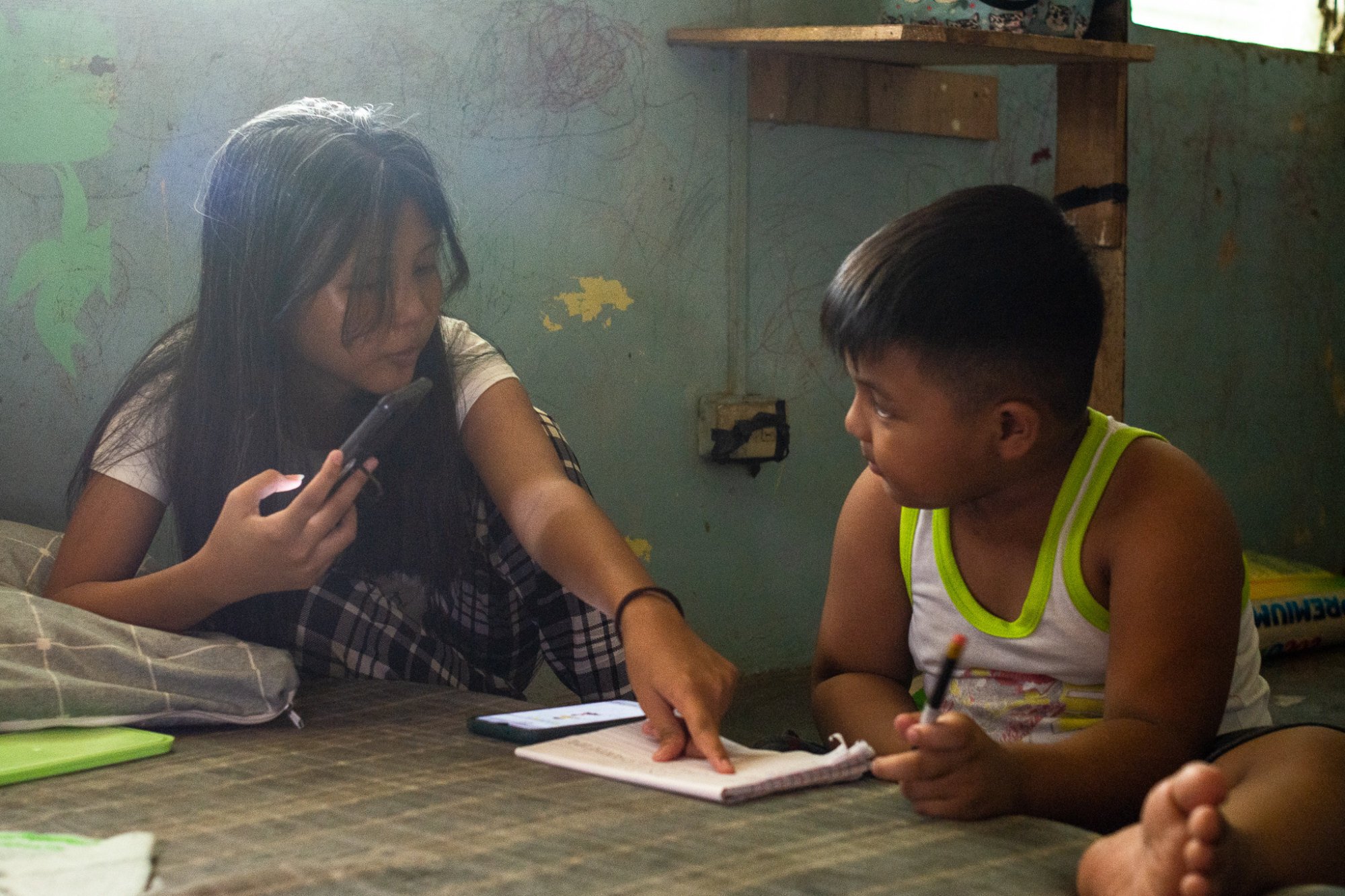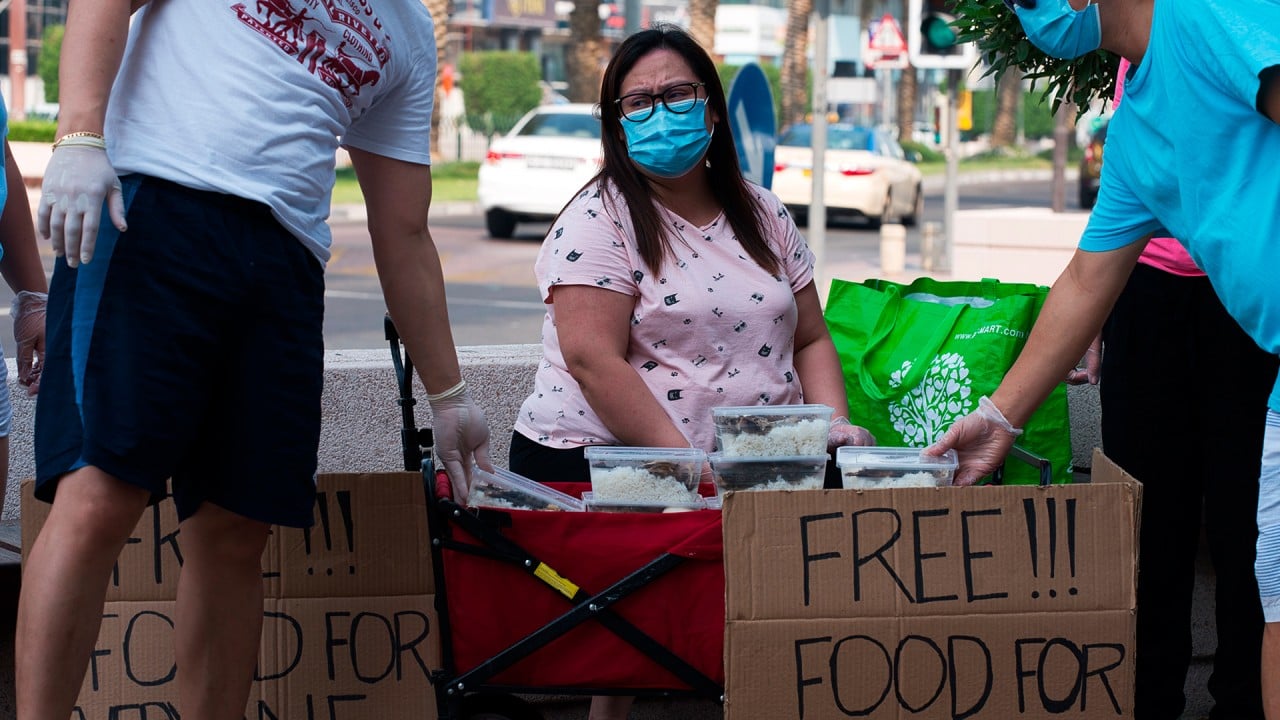
Filipino women share stresses of being the firstborn daughter who ‘parents rely on the most’
- Unpaid housework and helping with family finances are among the expectations of Filipino women who are firstborn children
- ‘Why buy new clothes when I’ll just be sweeping the floor in them?” says 28-year-old Majann, the glue holding her family together since she was 10
In Majann’s family, in Manila, she is the áte (elder sister), the captain of their ship, managing and overseeing everything that happens on deck. For years, she balanced her schoolwork with duties at home including tutoring her sister, cooking and managing expenses.
“My mother died in a car accident when I was 10,” she said. “I told myself that I need to step up for my sister Eljann because we no longer have a mother.” Eljann was seven at the time.

Now 28 and a law student, Majann, who lives in Manila, still does the housework, assisted by part-time helper Winnie, and cares for her retired father Elmerito, her partner Chalk, and the family dogs Jessie and Koko. Eljann does not live at home as she is working in a province north of Manila.
On top of all that, Majann helps run an online toy business with Chalk.
“I do this for the family and so my mother would be proud of me,” said Majann.
In a village 19km north of the Lazos’ home, another áte is also busy with household chores. Every day, Jasmine Buenaventura, who turns 17 this month, gets up at 6.30am then sweeps the floors and tidies her home.

Then her father Jonjon, a tricycle driver, takes her and her brothers Janjan, 11, and Jacob, five, to another house in the village. Their three-year-old brother James, when not being looked after by his grandmother, joins them too.
It is here that Janet, Jasmine’s mother, works as a live-in domestic helper, and where the three older siblings do their daily online classes; the home has an internet connection while their own dwelling does not.

In the evening the youngsters return to their house where the teenager’s long daily grind continues: preparing dinner, washing the dishes and getting her brothers to bed.
“Being the áte means being responsible, mature, and helpful to the family. Átes are also the ones that parents rely on the most,” she said.
Such expectations for firstborn daughters can come at great cost to the individuals affected, experts say.

In the Philippines, the áte – a Hokkien dialect word signifying a woman’s birth order and seniority – is very often the one tasked with caring for the family and doing much of the housework.
Dr Excelsa Tongson, an academic at the University of the Philippines, UP Diliman, who specialises in family life, said gender stereotyping begins at home.
“The eldest females are expected to act like their mothers, as good carers, while the eldest males are expected to be protectors and providers, together with their fathers.
“It’s too boxed-in, because we were raised in binary thinking that if you were born this way, because you’re a woman, ‘You can only move up to here.’”
Men and boys are not asked to do housework “because they have a different set of expectations: driving for the family, lifting heavy loads, giving money, and protecting siblings”. For families with no sons, the átes have to both care and provide.
This Week in Asia surveyed 25 firstborn Filipino women living in Metro Manila between August and October last year. They said Átes were primarily expected by their families to give financial aid (56 per cent of respondents said this was the case), followed by paying specific bills, caring for other family members, and doing the housework. But the tasks they actually did often went above and beyond expectations.
A 2016 Unicef study also backs up Dr Tongson’s explanation. The report’s statistics showed that, worldwide, girls aged 5 to 14 spend 40 per cent more time – 160 million more daily hours – on unpaid housework than boys the same age. The hours lengthen as the girls get older.
“The overburden of unpaid household work begins in early childhood and intensifies as girls reach adolescence. As a result, girls sacrifice important opportunities to learn, grow, and just enjoy their childhood,” Anju Malhotra, then Unicef’s Principal Gender Adviser, said in the study.
Jasmine said she argues with her parents, who, despite their desire for her to do well at school, sometimes complain that she studies constantly and is not always readily available to help out at home.
“I do feel bad at times when my parents ask me to take care of my brothers. They can’t seem to understand me,” said the hardworking teen, who hopes to become a teacher and lawyer.
As she is the áte, though, she chooses to be the bigger person and let misunderstandings slide.
For Majann, being dedicated to her family means having little to almost no time and space for herself and her needs and wants. She scoffs at the thought of even popping out to go shopping for a new outfit.
“New clothes! Why buy new ones, when I’ll just be sweeping the floor in them?”
The pressure to deliver at home can become intense. Majann feels resentment at times, and wants to “micromanage everything”.
“There are times when I get so angry when the people at home don’t do things my way.”
Several years ago, Majann was diagnosed with bipolar disorder. The doctor said it likely caused by the stress she was under. She also had a physical incident with her sister and was briefly estranged from her and their father in 2020, during the pandemic. They reconciled on his birthday later that year.

Majann credits her improved mental health to therapy, her partner and dogs, and a more open relationship with her father.
The 25 respondents that This Week in Asia spoke to echoed Majann’s predicament, with some saying they felt exhausted and weighed down. Dr Rowena Laguilles-Timog, chair of the Department of Women and Development Studies at UP Diliman, said many firstborn Filipino women feel trapped in the roles enforced upon them.
But Dr Tongon is hopeful for the future of the Filipino family, as attitudes towards gender are “evolving”.
“You just have to continue providing opportunities for people to realise that, regardless of the birth order, and regardless of whether your firstborn is male or female, all children need equal attention,” she said.
Majann says despite the struggles, she has a positive message for her fellow átes.
“It’s a comfort knowing that, in spite of all the difficult things we go through, big sisters are actually loved and respected by their families. You are not alone; every áte in the world is with you,” she said, with a smile.


